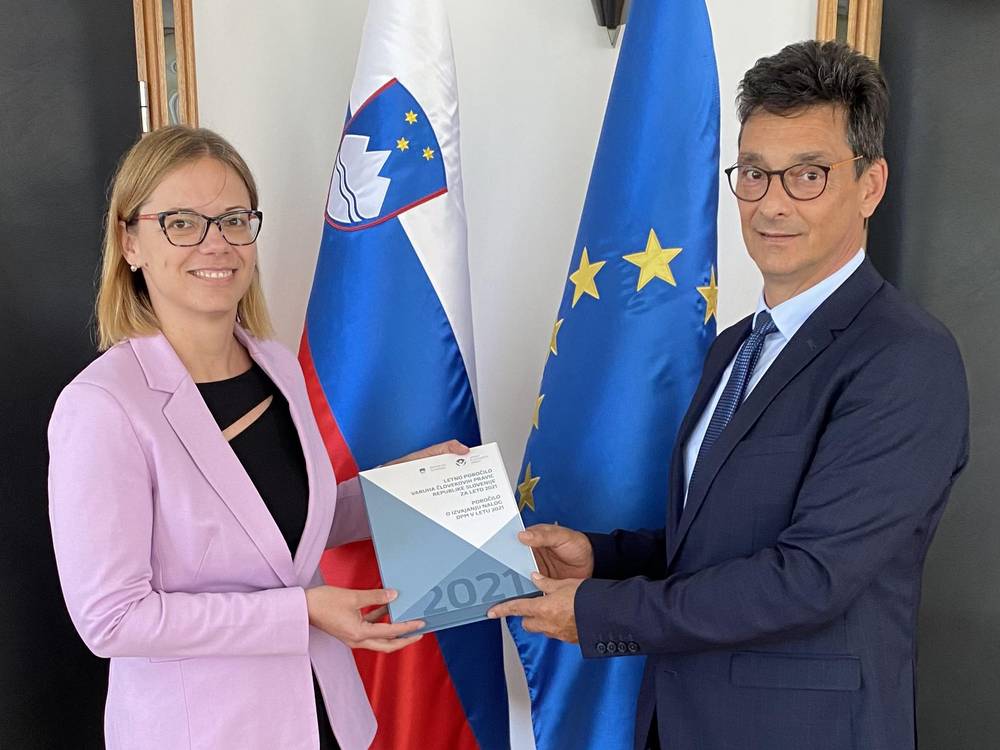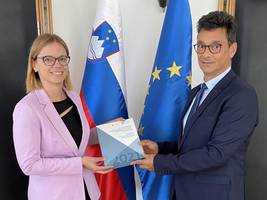Peter Svetina, the human rights ombudsman, has held a get-to-know-you meeting with Sanja Ajanović Hovnik, the minister of public administration, at which he delivered his annual report for 2021.
He noted that in 2021 it was again the principle of good governance that was breached most often by government bodies, local authority bodies and holders of public authorisations. “In investigations last year we found 88 breaches of the principle of good governance, which stipulates that everyone has the right to be heard impartially, fairly and within a reasonable time by the competent institutions and authorities. The principle of good governance also requires ministries, government departments, municipalities and other public institutions to respond in timely and substantiated fashion to the proposals that they receive,” emphasised Mr Svetina. His view is that there is a need to strengthen awareness of the importance of the duty to explain on the part of government bodies. “Every government official should be aware that their attitude to the job and to the public can have a major impact on people’s lives. Even at the ombudsman we see unacceptable delays, and some bodies only respond to us after multiple interventions, which really hinders our work,” said Mr Svetina at the meeting.
He also briefed the minister on the ombudsman’s recommendations to the Ministry of Public Administration to include more about human rights in its training programmes for civil servants. “Our centre for human rights is finishing its analysis of the training programmes on human rights organised for civil servants in the government administration by the academy of administration. The aim is to assess whether the existing level and scope of human rights training for civil servants is sufficient for the proper implementation of the UN’s World Programme for Human Rights Education, whose second phase envisages sufficient training being provided in this area to civil servants,” added Mr Svetina.
He also gave another reminder about the implementation of the Convention on the Rights of Persons with Disabilities, in the part relating to access to information and the understandability of information. “There are many among us who find it harder to read written information, and it is therefore our job to provide that information in a simple and understandable way. When it comes to accessibility in the public administration we will have to take even more steps, including adapting content for easy read,” reiterated the ombudsman, as he appealed to the minister to commit to ensuring that she and her colleagues give this area its due attention. As an example of best practice he cited the ombudsman’s own booklet in easy read format (in Slovene) and its ombudsman corner project in municipalities across Slovenia.
He also raised the provision of sufficient capacity for the effective performance of the tasks set out in the Accessibility of Websites and Mobile Applications Act, and reminded the minister that his recommendations remain pertinent, particularly with regard to capacity for carrying out inspections. According to Mr Svetina, the ombudsman is repeating the recommendation in the institution’s current annual report.

